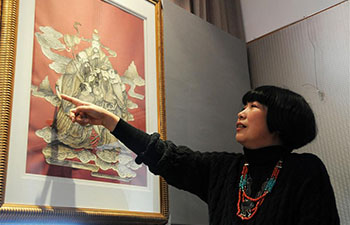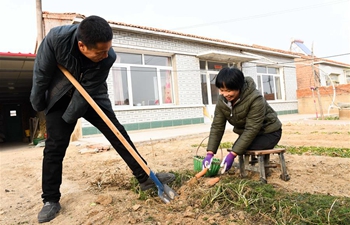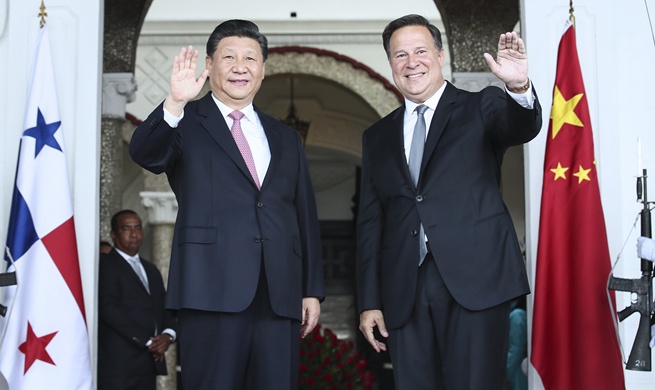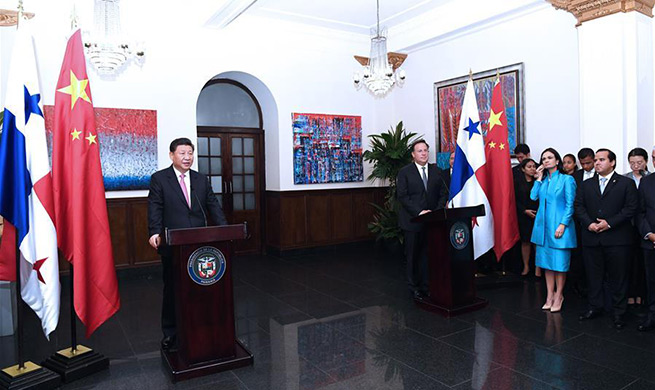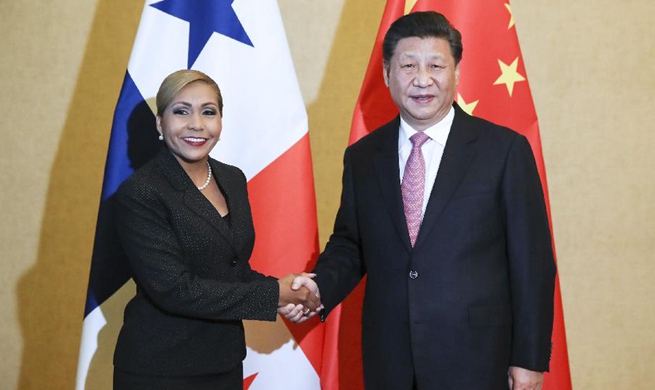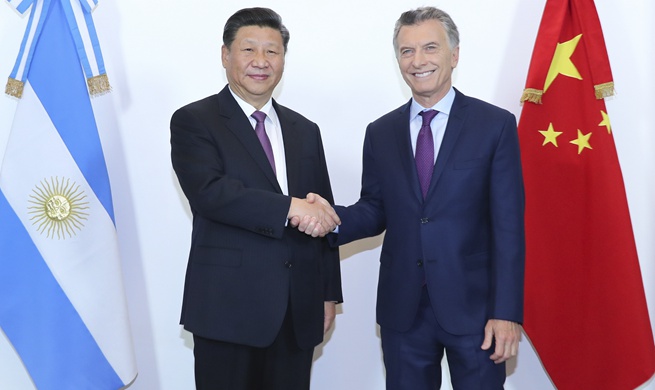by Burak Akinci
ANKARA, Dec. 4 (Xinhua) -- Turkey has seen high volatility in its currency and running inflation over the last couple of months. Although a tighter policy has been taken, the economic recovery is expected be a rough one fraught with austerity.
There is no doubt a challenging period ahead for Turks who are reeling under the effects of rising inflation and unemployment amid confident statements from government officials that the worse is now behind.
Yet the fact that municipal elections are now a couple of months ahead, due to be on March 31, 2019, is a blow to spending cuts ordered by the government as President Recep Tayyip Erdogan is adamant to secure one more victory against the opposition and this would mean a splurge of fresh money.
It was an annus horribilis for Turkey since the summer after its currency dropped to the unprecedented level of more than 7 liras against one U.S. dollar on a backdrop of diplomatic tensions with the United States followed by a skyrocketing 25 percent inflation in September, a 15-year peak.
But with massive interest rates hikes by the Central Bank and a broad scheme of price and currency controls, Ankara managed to prevent an economic meltdown.
The lira went up 8 percent in November with investors return to rallying Turkish assets, for the first time in several months.
And the inflation surprised on the downward in November, dropping to 21.62 percent on year-on-year rate from 25.2 percent in October, according to official data published on Monday.
Core inflation and the Producer Price Index (PPI) showed also encouraging trends, according to specialists.
"This is obviously very positive, yet the inflation may rise again at the beginning of next year because the tax and price reduction scheme of last two months is temporary," economist Enver Erkan from the Istanbul-based GMC securities told Xinhua.
In its fight against inflation, Ankara has cut taxes on consumer products, furniture and white goods and asked shop to offer discounts until the end of the year.
Erkan said that even in the first and second quarter of 2019, they may be volatility in inflation data, and stabilization is expected on the second half of 2019, as predicted by the government's revised economic plan announced after this summer's currency turmoil.
The economist expressed satisfaction regarding good tourism revenues this year and also a decrease of foreign policy risks as Turkey managed to minimize a series of differences with the U.S. and engaged a reconciliation process with the European Union.
From Venezuela where he is on a state visit, President Erdogan welcomed the positive data, saying that "Turkey's economy has shown strong performance" despite attack against it.
The Turkish strongman has regularly accused the West of being behind his country's financial turmoil.
Turkey's Finance and Treasury Minister, Berat Albayrak, hailed the good data on inflation, saying that his government was determined to uphold fiscal discipline in line of the measures announced to stabilize the ailing economy.
"We will continue to carry forward the structural steps that we have started in the fight against inflation," the minister said on Twitter.
The lira traded at 5.25 against the greenback on Monday, down still around 25 percent since the start of 2018 yet far from the 45 percent depreciation of the summer.
Turkey had to slash its growth forecasts for this year and next amid its currency crisis.
GDP for this year has been cut to 3.8 percent from 5.5 percent, and for 2019 to 2.3 percent.
Confidence in Turkey's economy surged 9.1 percent in November, the nation's statistical authority announced last week, contributing to the cautious positive outlook that both consumers and producers have for 2019.
However, as recent official data is rather encouraging, the real economy is suffering from the abrupt depreciation of the Turkish currency and the woes that it brought along with it.
In Ankara's 365 Shopping Mall located in the downtown area, several shops have closed in recent weeks due to the lack of business in general.
"There may be signs of a recovery on paper, but in real life, as the economy has slowed down considerably along with the people's purchasing power, there is no business here," Fahir Belen, a shop owner told Xinhua.
Rather than paying astronomical rents, some shopkeepers decided to close.
"I personally don't expect this situation to change in 2019 also, it will take time before we will recover from this," he added.
An Ankara branch official from a private bank who spoke on the condition of anonymity said to Xinhua that while the banking sector is strong in Turkey with important measures taken since the previous 2001 crisis, some banks had serious difficulties collecting bad debts from companies who filed for bankruptcy protection.
"Many companies are in quite bad shape and have problems restructuring their debts because of the currency crunch that they are facing despite efforts deployed by the government," the banker said, hoping that situation would change for better in the coming year.


